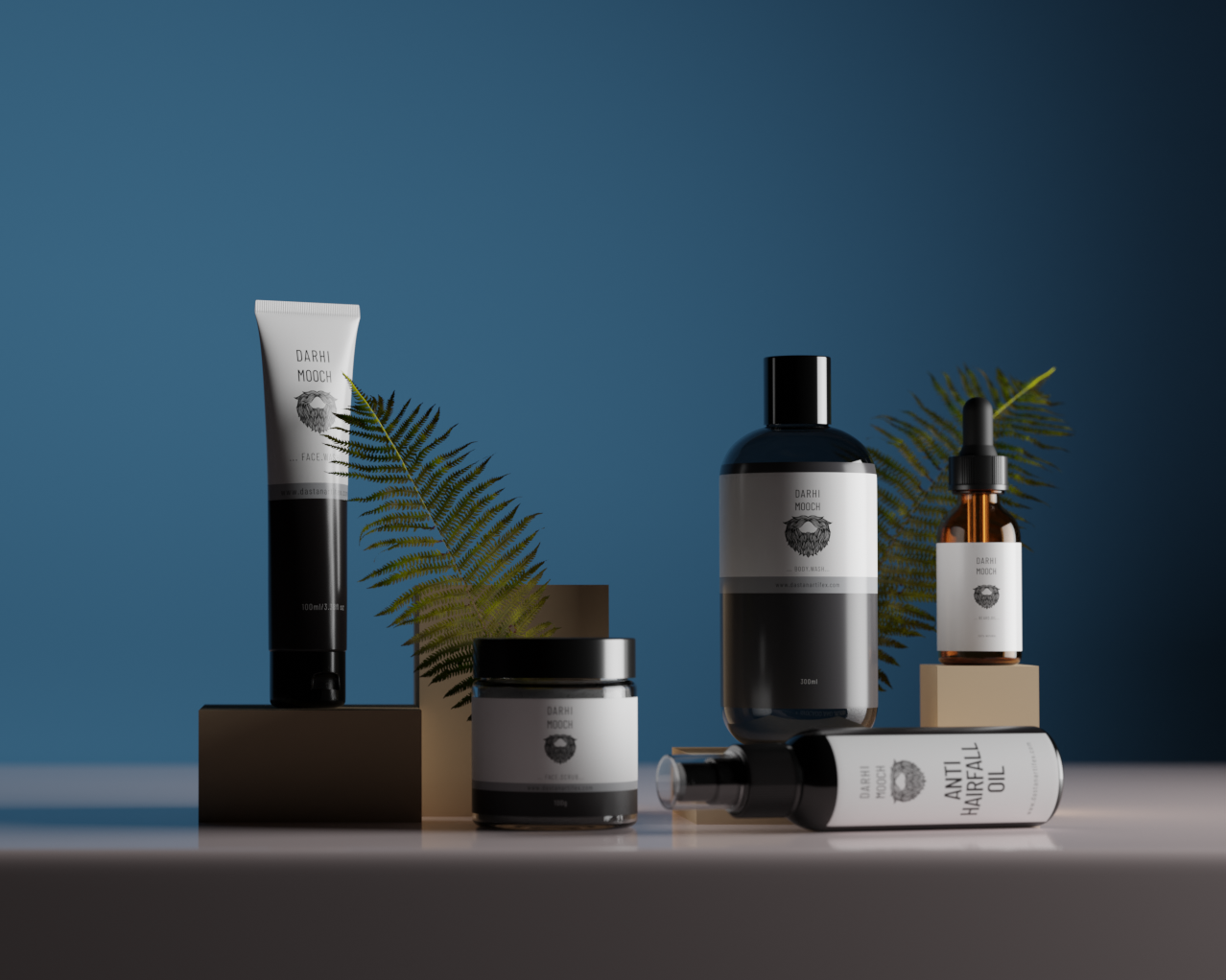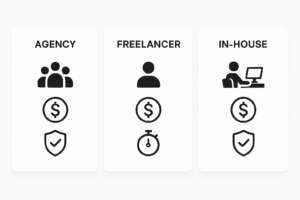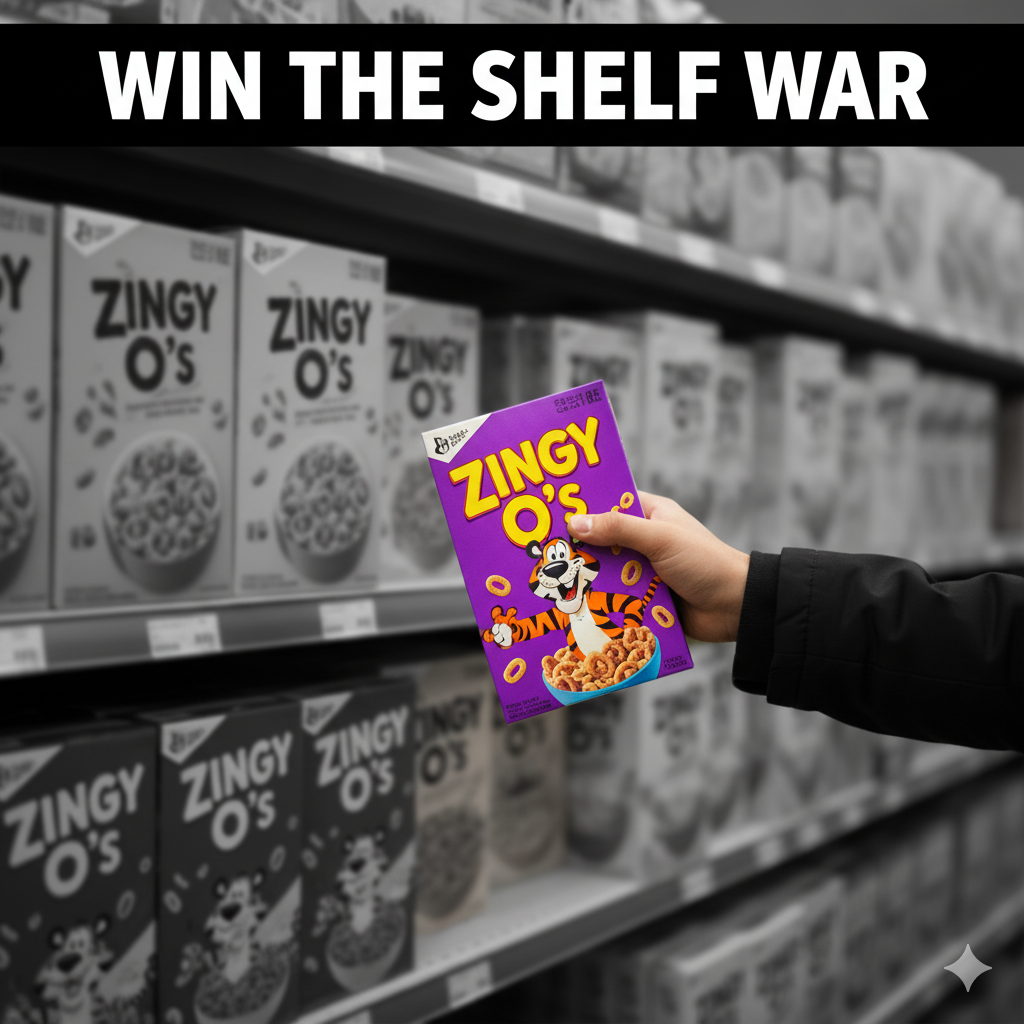Packaging Design Agency: The 2025 Buyer’s Guide to Strategy, Cost & Results
Your packaging is more than a box or label—it’s a sales tool, a brand ambassador, and a mini ad that works on the shelf and on a 6-inch phone screen. The right packaging design agency translates your positioning into visuals that convert: from retail planograms to thumbnail-first e-commerce.
Why brands hire a packaging design agency
-
Market clarity & positioning: Agencies turn abstract brand values into on-pack communication that buyers notice in 3 seconds.
-
Retail + e-commerce readiness: From print-ready dielines to scroll-stopping PDP mockups, you get one team for shelf and screen.
-
Pre-press & compliance: Color profiles, ink limits, barcodes/GTINs, and supplier coordination reduce reprints and delays. (Learn about GTINs from GS1.) GS1 USGS1
-
Sustainability guidance: Consumers value recyclable and lower-impact materials, so packaging choices now affect brand preference and retention. McKinsey & CompanyNIQ
The ROI case (with data)
-
A majority of shoppers say packaging design influences purchase decisions—it’s not just what you say, it’s how it looks and communicates. ipsos.com
-
Unboxing isn’t fluff; it can lift retention and social sharing when you upgrade from plain to custom experiences. Shopify+1
-
Sustainable packaging matters across demographics, with younger buyers often the most willing to pay more for it. McKinsey & Companypackagingeurope.com
What a packaging design agency actually delivers
-
Discovery & brief: audience, shelf context, claims hierarchy, regulatory needs.
-
Competitive & trend scan: colorways, structure cues, sustainability opportunities. (Recent consumer views show recyclability ranks highly. ) packagingdive.com
-
Concepts: 2–3 routes exploring structure, typography, color, and claim emphasis.
-
Refinement & pre-press: dielines, separations, varnish/foil call-outs, cutter guides.
-
Compliance: barcode/GTIN placement and legibility; category-specific copy conventions. GS1GS1 US
-
3D renders & e-commerce assets: hero images, PDP galleries, lifestyle mockups.
-
Printer liaison & press checks: color proofs, drawdowns, and first-run oversight.

How to choose the right agency (checklist)
-
Portfolio relevance: Can they show work in your category (F&B, supplements, cosmetics, vape, household)?
-
Pre-press depth: Spot varnish, Pantone bridges, trap/bleed comfort level.
-
Retail + DTC fluency: Thumbnails, A+ content, and unboxing strategy. Shopify
-
Sustainability literacy: Material swaps that meet your cost/COGS, recyclability claims that stand up to scrutiny. McKinsey & Company
-
Process & timelines: Structured rounds, clear milestones, and supplier coordination.
Typical timeline & cost (ballparks)
-
Concept to print-ready for one SKU: 3–6 weeks (simple label) to 8–12 weeks (new structural design, multi-SKU family).
-
Investment varies by scope/market: $1.5k–$5k (single label refresh), $6k–$20k+ (full brand system with 3–6 SKUs, 3D renders, and e-comm assets).
(These are orientation ranges—your category, number of SKUs, and sampling needs drive the final quote.)
Agency vs. freelancer vs. in-house (quick view)
| Option | Best for | Pros | Cons |
|---|---|---|---|
| Agency | Multi-SKU lines, retail + DTC | Cross-discipline team, vendor management, speed | Higher cost |
| Freelancer | Startups, single SKU | Budget friendly, flexible | You coordinate printers/compliance |
| In-house | Established brands | Full control, faster iteration | Hiring overhead, narrower exposure |

Sustainability without greenwashing
An agency helps prioritize material reduction, recyclability, and ink/finish impact while preserving shelf appeal—because “eco” still needs to sell. Recent surveys show recyclability is the top signal shoppers look for in sustainable packs; align your claims with what consumers recognize. packagingdive.com
Barcodes, GTINs & retail readiness
Don’t let a blurry barcode derail a launch. Follow GS1 sizing/quiet-zone rules and assign GTINs correctly when SKUs change (size, formula, multipack, etc.). Your agency should sanity-check specs before press. GS1GS1 US
FAQs about Packaging Design Agencies
Q1) What’s the difference between a brand designer and a packaging design agency?
A brand designer focuses on identity (logo, type, palette). A packaging agency translates that identity into on-pack communication that meets retail, regulatory, and pre-press requirements—plus e-com visuals and unboxing.
Q2) How many concept rounds are typical?
Usually 2–3 concept routes, then 2–3 refinement rounds. Add time for printer proofs and structural samples.
Q3) Can you help with sustainable materials?
Yes—your agency can compare substrates/finishes against budget and recyclability expectations and advise on credible claims. McKinsey & Company
Q4) Do I need a GTIN/UPC before design?
It helps. Agencies can reserve space and place barcodes correctly, but GTIN assignment should follow GS1 rules for accuracy. GS1 US
Q5) What improves e-commerce conversion most?
Clear front-panel hierarchy, legible benefits in thumbnail size, and premium unboxing experiences that earn shares and repeats. Shopify+1
Work with a specialist (portfolio & hire links)
See a real label system we delivered: Dog Supplement Label Design – OurPets Life (Case).
Ready to move fast? Hire Usman on Upwork (or ping for a quick scope).





